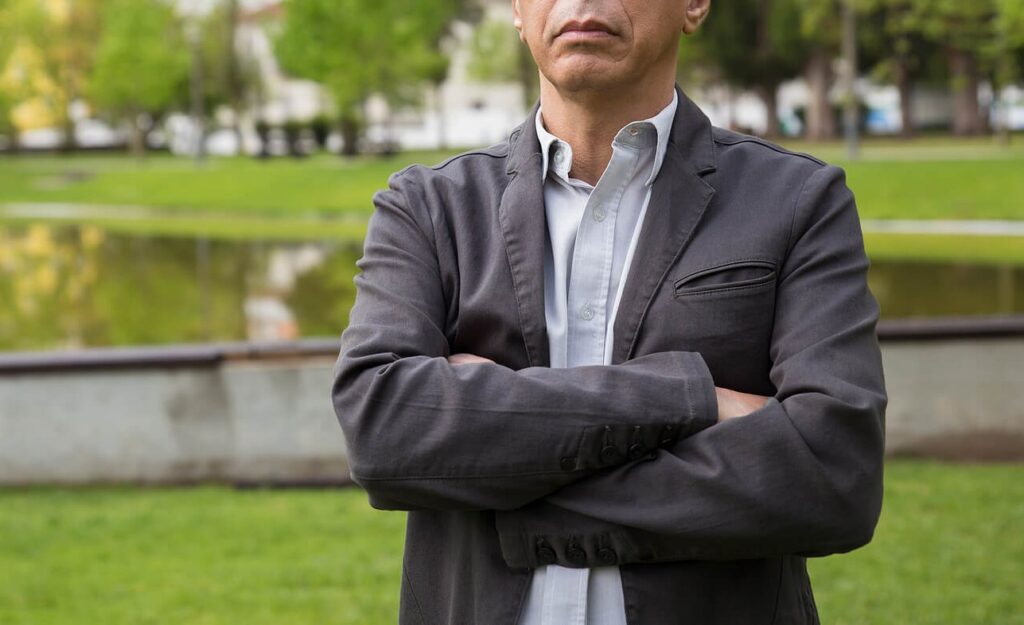
Mark was probably the first close friend I “fired” in my life. Our relationship had become uncomfortable for reasons I’ll explain, and at times, toxic with his overbearing attitude and his selfish behaviors—ones I often hear about from clients during relationship therapy sessions. I’d like to say there were redeeming qualities of friendship during our short time together, but that would be stretching it. I remember the final conversation we had in which I told Mark very directly that we couldn’t hang out anymore.
“So, you’re unfriending me?” he asked in that smart ass way only he could produce. “Yes”, I said. “My wife and I have moved on. We just don’t fit anymore. Good luck in your new home.” I felt a mixture of sadness and relief, but was sure I’d done the right thing to take care of myself. Deep down, I was afraid that I had hurt his feelings, but the relief side of me won out. I had had enough unsolicited coaching. During our time together, he’d persisted with an insidious habit of correcting my speech or behavior without my permission, intruding into conversations, calling it “feedback”.
A few times, I remember telling Mark how I’d prefer him to keep his thoughts to himself. I shared that I hadn’t asked for his opinion, but he gave it anyway. It was almost as if he were blind to his own destructive behavior or its effect on me. On subsequent occasions, it was as if he’d forgotten all about my complaint. I learned that Mark had been a professional coach for business for a long time, and these habits were very ingrained. It took a while, but I became sure our patterns wouldn’t change.
Relationship Red Flags Aren’t Always Noticeable
Mark seemed funny and disarming when we first met at a Chamber of Commerce program on speaking. A natural charmer, he had a big smile and a welcoming face. A bit older than me, he reached out during lunch and sat with me until the session resumed. “Best Presentations” was the title, and I wanted to sharpen my speaking and presentation skills. It involved some live role play. I was excited.
“You really almost nailed it this morning on your first two-minute talk”. He spoke. “Slow down your timing and try to look the audience members in the eyes as you speak. You can get MUCH BETTER as a speaker from where you stand now.” I felt insulted, but brushed it off. It felt overly familiar because we’d just met.
“Thanks,” I said, “I’ll keep that in mind”. This pattern never stopped. We had a few lunches, but I always felt uneasy. I suppose I was, like many others, won over by Mark’s charm.
He really wanted us to be friends. But in the end, it just got worse. I was constantly offended by his intrusive behavior. One helpful book I’d highly recommend on this subject is Jenny Rogers’ Coaching Skills: A Handbook. Another is Munirat Adekunle’s excellent book called Ending Toxic Friendships: A Step-by-Step Guide to Ending Toxic Relationships and Cultivating Positive Connections.
Is It Possible to Fix a Toxic Relationship?
If you have a friend like Mark and recognize the toxicity of the relationship but still feel like there’s hope, you might want to try a measured approach. These are some of the steps I suggest to clients during relationship therapy in Delray Beach, FL:
It can be tough when a close friend keeps offering advice or coaching you without being asked, especially when you care about the relationship and don’t want to hurt their feelings. One way to handle it is to start by acknowledging that they probably mean well. You might say something like, “Hey, I know you’re trying to help, and I really do appreciate that you care about me.” Then you can gently explain how it feels on your end. Maybe say, “Sometimes when I’m talking things out, I’m not really looking for advice — I just need someone to hear me.”
From there, it helps to make a simple ask. Like, “Would you mind checking in before offering suggestions? Sometimes I just need space to think it through on my own.” And if it feels right, you can even keep it light.
Something like, “You’re a great coach — but once in a while, I just need a cheerleader or someone to grumble with.” That way, you set a boundary without making it a big confrontation.
When It’s Time to End the Friendship—A Delray Beach Therapist’s Experience
With Mark, I tried it all. I can truthfully say I invested way too much in this Mark relationship before concluding that we needed to part. If you’re at the point where friendship feels more draining than supportive, and you’ve already tried having honest conversations or setting boundaries, it’s okay to step away. Ending a friendship is never easy, but you can do it in a way that’s honest and respectful. I was a bit bold, in my exasperation, and I’ve often thought of other ways to achieve the same outcome.
If Nothing Changes, Prioritize Your Well-Being
I’ve helped many clients manage difficult, toxic friendships in my Delray Beach counseling practice. Here are a few ideas:
You might go with something calm and direct, like saying, “I’ve been doing some thinking, and I feel like our dynamic has changed in a way that doesn’t feel healthy for me anymore. I really do appreciate the role you’ve played in my life, but I need to step away from this friendship right now. I hope you can understand.”
Or you could take a gentler approach and say, “This is hard to say, but I’ve been feeling overwhelmed by how our friendship has been going. I’ve tried to make it work, but I realize I need more space and peace in my life. I think it’s best if we go our separate ways. I’m grateful for the good times we’ve shared.”
If a direct conversation feels too intense or confrontational, it’s also okay to just start pulling back slowly. That might look like taking longer to respond, setting clearer limits—like saying, “Hey, I’m not really up for talking this week”—or just letting things naturally cool off over time.
And just so you know, you don’t owe a long explanation. You don’t need to debate your decision to end the friendship or convince them to agree. If they push back, you can keep it simple: “I’ve made my decision, and I need to honor what’s best for me.”
When Friendships Turn Toxic, Relationship Counseling in Delray Beach Can Help
If you’re looking for a relationship therapist in Delray Beach, FL, I encourage you to contact me for guidance and support when navigating toxic friendships. reach out through text at 561-231-8030, or send an email to jdlmhc@gmail.com. I’d be honored to work with you.
Know When It’s Time to Let Go—Support for Ending Toxic Friendships Through Relationship Therapy in Delray Beach, FL
Toxic friendships can leave you questioning your worth, second-guessing your instincts, and feeling emotionally exhausted. Relationship therapy offers a safe, validating space to help you recognize red flags, understand your emotional responses, and take empowered steps toward healthier connections. If you’re struggling to distance yourself from a harmful friendship or unsure how to navigate the emotional fallout, I’m here to help guide your healing process at my Delray Beach therapy clinic.
Here’s how to take the next step toward clarity and emotional freedom:
- 1. Express your concerns in a compassionate, judgment-free space. Schedule a consultation so we can walk through them together.
- 2. Learn how to identify manipulation, guilt tactics, and boundary violations with support from an experienced relationship therapist in Delray Beach, FL.
- 3. Begin building new patterns that reflect self-respect, emotional clarity, and stronger boundaries.
Other Therapy Services I Provide in Delray Beach, Florida
If you’re caught in a friendship that leaves you drained, anxious, or constantly doubting yourself, relationship therapy in Delray Beach can help you uncover what’s really going on. With professional support, you can learn to recognize toxic dynamics, strengthen your boundaries, and move toward healthier, more balanced connections rooted in mutual respect.
In addition to therapy for relationship issues, my Delray Beach, FL counseling practice offers a wide range of mental health services to support your emotional well-being. I work with clients both in person and online, helping with challenges such as addiction, parenting difficulties, and communication breakdowns in couples. I also provide therapy for anxiety, trauma, infidelity, narcissistic personality disorder (NPD), and other concerns.
My therapeutic approach is personalized and integrative, drawing on CBT, EMDR, Gestalt therapy, mindfulness, psychodrama, and clinical hypnosis. Additional services include grief counseling, spiritual support, and ADD/ADHD treatment. To explore more resources or schedule a session, visit my counseling blog or reach out directly.
About the Author
John Davis is a respected relationship therapist in Delray Beach, known for helping individuals, couples, and families work through emotionally charged and often painful dynamics. With a trauma-informed approach that integrates EMDR, CBT, psychodrama, and mindfulness, John offers a supportive space for clients navigating everything from mood disorders and trauma to parenting stress and impulse control.
He brings a unique strength to relationship therapy for those struggling with toxic friendships and morally destructive patterns. John helps clients recognize red flags, break harmful cycles, and develop the confidence to set and maintain healthy boundaries. With a foundation in child and family therapy, he understands how early relationship dynamics can shape adult behavior—and how to begin untangling those patterns. As Executive Director of the Mental Health Counselor’s Association of Palm Beach and a recipient of the Outstanding Community Service Award, John is a trusted figure in the field. His work empowers clients to reclaim clarity, emotional safety, and fulfilling connections.


